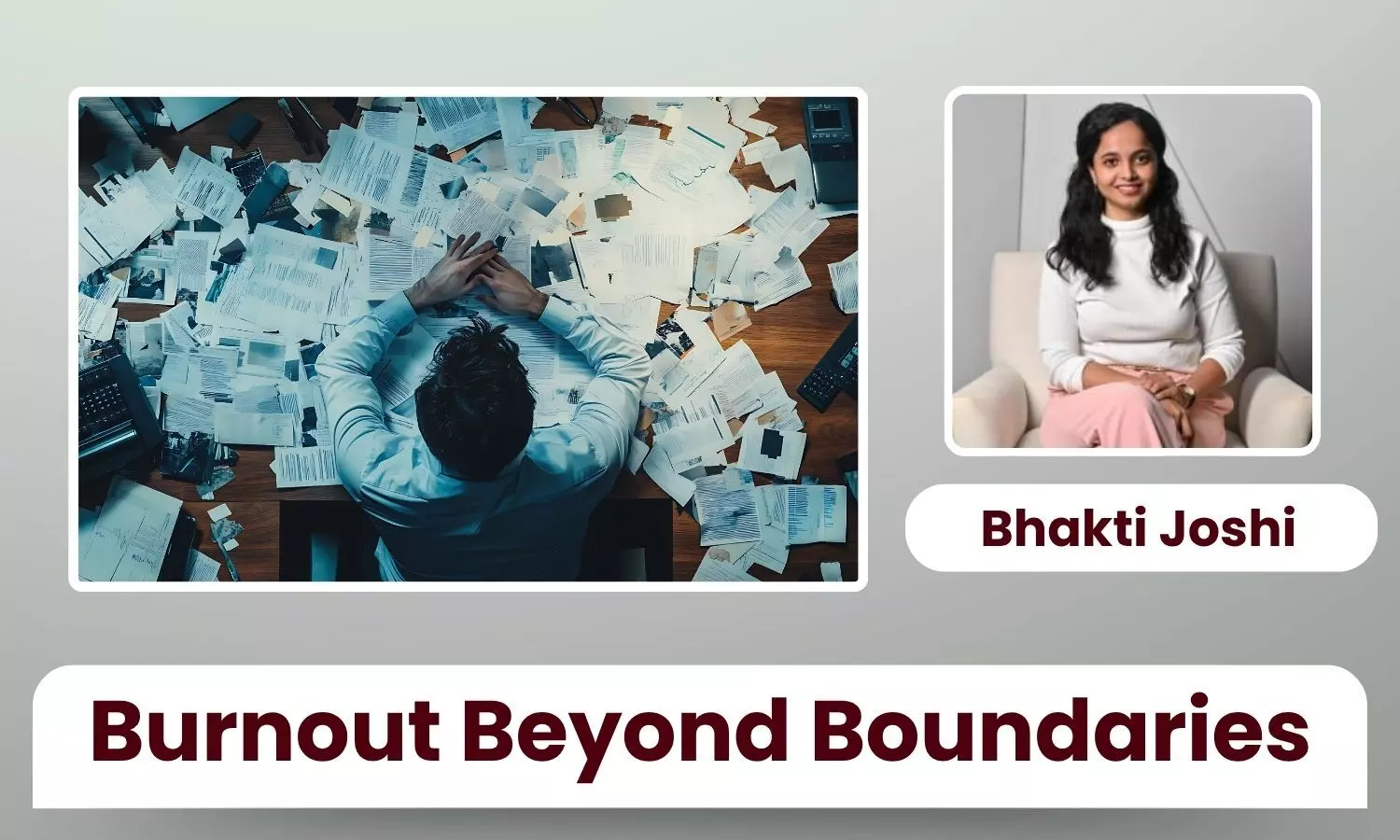Burnout, Stress, and Anxiety among working professionals and young adults - Bhakti Joshi

When the pandemic forced many people to change how they lived and worked, it still had a deep-seated impact on their mental health. Since Covid-19, burnout, anxiety, and just the pressure of keeping up have been increasingly reported among young professionals: the Millennials and Gen Z.
At first, working from home was a godsend to many: commute time reduced, flexible hours, more time with families. But for the rest, the lines between home and work life began to blur.
Deadlines were prolonged till midnight, work calls and messages came after working hours, and the switch between "on" and "off" blurred. What had started as a convenience soon turned into exhaustion.
Reports about mental health consultations have surged since 2020, mainly for young adults. Desire wrestles with fear: a desire for career growth hard to balance with work, life, and purpose. Success, once glamorous, has become a source of burnout and emotional exhaustion.
Work-related stress is definitely the number one cause of complaint among today's youth. Men feel burdened with expectations to be earners, supporters, and performers.
Apart from workplace stress, society judges women based on their looks and their relationships. This pressure is further enhanced through social media, exposing youngsters day in and day out to constant comparisons and negative feelings.
Friendships and relationships also suffer from the overflow of emotional stress, financial struggles, and personal insecurities into public life. Anxiety, self-doubt, and body image problems are magnified by digital culture. The pressures of "keeping up" in careers, friendships, and lifestyle allow little room to pause and breathe.
Gone is the dream of work-life balance, so long debated and so seldom reached. Young professionals cannot disconnect: answering messages at dinner time, checking emails before bedtime, and feeling guilty if one rests.
Long periods on the alert end in burnout: physical exhaustion, mental detachment, and the feeling of operating on autopilot. The growing awareness of mental health has shifted what people think success looks like: it's now most normal to talk about therapy, to set boundaries, and to rest; and employers are learning that their productivity levels depend upon their employees' well-being.
This isn't a generation given to indolence and decrepitude; this is an exhausted generation. Worn out from years of running for the sake of running, from pretending that everything is okay and that resting was the same as giving up, today's professionals have suddenly decided that in this over-speeding, high-achieving world, it is all right to pause, rest, and sleep.
Disclaimer: The views expressed in this article are of the author and not of Health Dialogues. The Editorial/Content team of Health Dialogues has not contributed to the writing/editing/packaging of this article.


